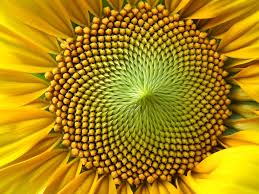
The Power of the Mind
We live with our mind every day. One way to state the focus of the Buddhist teachings is that they transform the mind such that it no longer experiences dukkha (dissatisfaction or suffering). The powerful premise is that the mind is trainable and that there is a path from here – whatever state our mind is in – to the end of suffering.
From the Dhammapada chapter on The Mind:
Whatever an enemy may do to an enemy,
Or haters, one to another,
Far worse is the harm
From one’s own wrongly directed mind.
Neither mother nor father,
Nor any other relative can do
One as much good
As one’s own well-directed mind.
As we practice over months and years, the truth of these verses becomes ever more clear. And so we develop mindfulness, concentration, lovingkindness, compassion, patience, generosity, and many other beautiful mindstates that bring ease right in the moment as well as sowing seeds of future happiness.
Here is a practice phrase to consider: All we ever encounter is our own mind. Seriously. Look around and ask if anything you see, hear, touch, or even think is independent of your mind’s perception of that thing. Is there really anything that is not, in some way, in your own mind? This is not a philosophical assertion or abstract theory; it is an experiential statement that is relevant for the ending of suffering. (Which is what the Buddha taught – not philosophy). Once we see that we only encounter our own mind, the heart can start to relax. There is truly nothing to fear.
Training the mind is often likened to planting seeds and cultivating plants. Our intentional actions, wholesome and unwholesome, plant seeds in our consciousness that will ripen and bear fruit under supportive conditions. So there are two tasks: Plant the best seeds possible through wholesome intentions (of non-harming and letting go), and be careful to water and nourish only the wholesome seeds (through the four Right Efforts). The fruits will come with patience and perseverance. Of course we don’t do this perfectly, but we try.
We really can’t have too many wholesome seeds and beautiful plants. So, please cultivate happily. And… at some point it is natural to see that this effort itself creates some strain, and that there are some buried unwholesome seeds that we can’t entirely root out through various gardening techniques. At that point, we will have the insight that allows the mind to go beyond seeds. There is no final solution within the realm of seeds; it is only by rendering all of them infertile (unwholesome and wholesome alike) that the mind finds release. It’s a process.
This is the power of the mind. It can make a heaven of hell or a hell of heaven, and it’s our choice to render it into our greatest asset.
Lest this sound complicated or daunting, please know that one of the great gifts of training the mind or heart is that we become more simple. Not simplistic, or like simpletons, but simple. Non-convoluted. Straightforward and unassuming (as in, not making assumptions). And our own ease eases the tensions of others.
From Andre Comte-Sponville:
“The simple person lives the way he breathes, with no more effort or glory, with no more affectation and without shame… The simple person does not take himself too seriously or too tragically. He goes on his merry way, his heart light, his soul at peace, without a goal, without nostalgia, without impatience… He has nothing to prove, since he has no appearances to keep up, and nothing to seek, since everything is before him. What is more simple than simplicity? What lighter? It is the virtue of wise men and the wisdom of saints.”
We live with our mind every day. One way to state the focus of the Buddhist teachings is that they transform the mind such that it no longer experiences dukkha (dissatisfaction or suffering). The powerful premise is that the mind is trainable and that there is a path from here – whatever state our mind is in – to the end of suffering.
From the Dhammapada chapter on The Mind:
Whatever an enemy may do to an enemy,
Or haters, one to another,
Far worse is the harm
From one’s own wrongly directed mind.
Neither mother nor father,
Nor any other relative can do
One as much good
As one’s own well-directed mind.
As we practice over months and years, the truth of these verses becomes ever more clear. And so we develop mindfulness, concentration, lovingkindness, compassion, patience, generosity, and many other beautiful mindstates that bring ease right in the moment as well as sowing seeds of future happiness.
Here is a practice phrase to consider: All we ever encounter is our own mind. Seriously. Look around and ask if anything you see, hear, touch, or even think is independent of your mind’s perception of that thing. Is there really anything that is not, in some way, in your own mind? This is not a philosophical assertion or abstract theory; it is an experiential statement that is relevant for the ending of suffering. (Which is what the Buddha taught – not philosophy). Once we see that we only encounter our own mind, the heart can start to relax. There is truly nothing to fear.
Training the mind is often likened to planting seeds and cultivating plants. Our intentional actions, wholesome and unwholesome, plant seeds in our consciousness that will ripen and bear fruit under supportive conditions. So there are two tasks: Plant the best seeds possible through wholesome intentions (of non-harming and letting go), and be careful to water and nourish only the wholesome seeds (through the four Right Efforts). The fruits will come with patience and perseverance. Of course we don’t do this perfectly, but we try.
We really can’t have too many wholesome seeds and beautiful plants. So, please cultivate happily. And… at some point it is natural to see that this effort itself creates some strain, and that there are some buried unwholesome seeds that we can’t entirely root out through various gardening techniques. At that point, we will have the insight that allows the mind to go beyond seeds. There is no final solution within the realm of seeds; it is only by rendering all of them infertile (unwholesome and wholesome alike) that the mind finds release. It’s a process.
This is the power of the mind. It can make a heaven of hell or a hell of heaven, and it’s our choice to render it into our greatest asset.
Lest this sound complicated or daunting, please know that one of the great gifts of training the mind or heart is that we become more simple. Not simplistic, or like simpletons, but simple. Non-convoluted. Straightforward and unassuming (as in, not making assumptions). And our own ease eases the tensions of others.
From Andre Comte-Sponville:
“The simple person lives the way he breathes, with no more effort or glory, with no more affectation and without shame… The simple person does not take himself too seriously or too tragically. He goes on his merry way, his heart light, his soul at peace, without a goal, without nostalgia, without impatience… He has nothing to prove, since he has no appearances to keep up, and nothing to seek, since everything is before him. What is more simple than simplicity? What lighter? It is the virtue of wise men and the wisdom of saints.”
